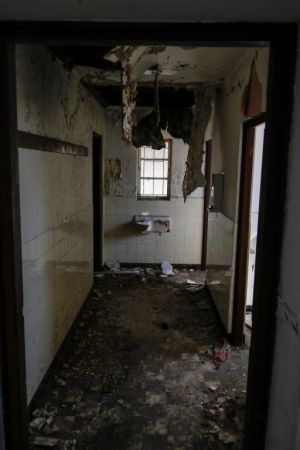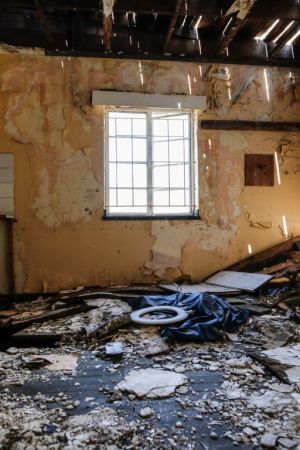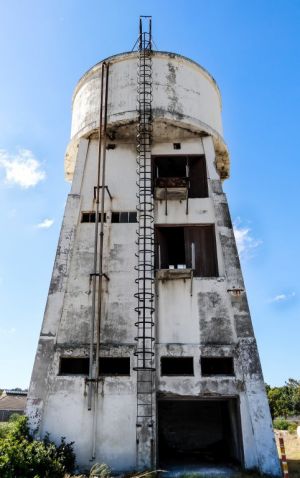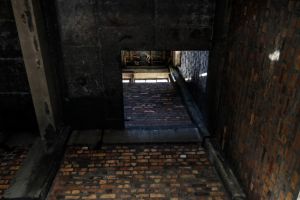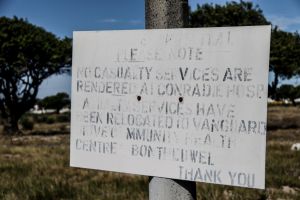Conradie Hospital, opened in 1938, lay between the suburbs of Thornton and Pinelands in Cape Town. It was, at one stage, one of the top treatment centres for Spinal Neurodegenerative Disease and was thought to staff some of the best doctors, nurses and physicians prior to it's closing.
Before being converted for civilian use, Conradie hospital used to be an army hospital, which aside from including a general medical and surgical ward, also included a Spinal unit, Pediatric and small Neurosurgery unit.
Gardening of the hospital grounds was carried out by convicts from the local prison. For this reason, the hospital was avoided by academics, who preferred the University Teaching Hospital instead of the perceived roughness of Conradie Hospital.
The hospital featured in Jonathan Kaplan's "The Dressing Station, a Surgeon's Odyssey" a "memoir" of sorts which makes for interesting reading, (and an insight which keeps you engaged throughout), covering the inequalities of the past...
A hospital with such promise and potential had a notable patient that we were able to find, Charles Oppelt, a 17 year old from Atlantis, Cape Town, who dreamed of becoming a rugby player. On that fateful day, March the 23rd 2002, in a game for Mamre Rugby Club's third team, he took to the field as a Hooker and had a collision with an opponent's shoulder, causing a severe injury to his cervical spine.
"I was scared, my body was so weak, i felt so uncomfortable, it was a pain I can't put into words" Oppelt said. He could not lift his hands, there was no movement in his entire body, he was only able to move his eyes.
Imagine the terror sweeping through this young prospects mind...
Sadness strikes this story further, after being taken to Groote Schuur Hospital, he lay there waiting, hour after hour, 14 hours total before receiving treatment. The following morning however, he was taken to Conradie Hospital, where he underwent surgery on his spine, called "Closed Cervical Reduction" - in which the spine is stretched, releasing pressure on the Spinal Cord and encouraging blood flow, to prevent tissue dying off.
Sadly though, he was left paralysed.
Oppelt felt he was let down by the health department and proceeded with a 13 year legal case against the Western Cape Health Department for negligence in their treatment towards him, which he won as the health department was seen to be negligent and his paralysis could potentially have been avoided.
Dr Dennis Newton, the Orthopaedic Surgeon heading the Conradie Spinal Cord injuries unit, said that the procedure that could have avoided paralysis needed to have been performed within 4 hours of his injury. Oppelt had however waited till the next day for any surgery to take place.
Conradie Hospital was officially closed in 2002, being brought down by a crumbling economy and lack of funding. Today it stands as you see it, abandoned, with nothing left but two water towers, a hall and distant reminders of the bustling hub of activity and prowess that it once had.
There were rumours floating around that doctors and nurses just up and left the one day, leaving all patients behind. This was not true, as its believed that the nurses and doctors stayed up until the very last day, and waited for all patients to be transferred from Conradie to Lentegeur Hospital in Mitchell's Plain.
The hospital grounds stood dormant for almost a decade, but in 2016, the 22 hectare plot of Conradie Hospital was set to be revived, with a multibillion rand affordable housing development planned.
The development was touted to include housing, shops and offices, but also childcare facilities and private schools. Construction of this new site is seemingly set to begin in April 2018, with an estimated completion date of 2024, and aim of having the first residents move into their new apartments in 2020.
Through the new construction, it is estimated that up to 4300 jobs a year will be created, as well as an estimated contribution to the economy of more than R3 Billion annually.
